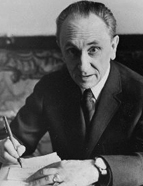

Again, João Ameal ’ s analysis is not without the influence of traditionalist thought and the IL – especially António Sardinha ’s , whose unrealised project of a revisionist History of Portugal was, in fact, tentatively recovered by him and Rodrigues Cavalheiro in the aforementioned Erratas à História de Portugal [Errata to the History of Portugal] – and which is echoed, moreover, in his own História de Portugal [History of Portugal] . However, other methodological references, such as Bainville, Jacques Maritain, Robert Aron , and André Beaunier, are also traceable in this respect.
João Ameal ’ s História de Portugal [History of Portugal] is, as characteristic of other works linked to traditionalism, somewhat oscillating. He emphasises certain moments, especially the formative phase of the Middle Ages – already highlighted in other works as ‘[ … ] the great period, the culminating period of human philosophy’ ( Panorama do Nacionalismo Português [Panorama of Portuguese Nationalism] , 1932, p. 36) – the Expansion and the Restoration, to the detriment of others. For Ameal, however, these were not mere moments of apogee in the face of others of decline or decadence; rather, they signified what would be the normal course of the H istory of Portugal , during which there were occasional interruptions, such as what happened in the mid-18 th century with the Marquis of Pombal or, in particular, during the ‘ dismal century ’ of liberalism ( História de Portugal [History of Portugal] , IV, 1958, p. 360), reversed by 28 May 1926. Suggestive of his philosophy of History, João Ameal also calls them ‘relapses’: ‘It is a fact: relapses are always possible in History. And they can occur as much in the history of a life as in that of a country, a continent , or an entire civilisation’ ( Rumo da Juventude [The Direction of Youth] , 1942, p. 81).
One line of argument cuts across the interpretation of these interruptions – or ‘static’ moments, to use João Ameal ’ s conceptual field – as gaps in what would otherwise be the normal course of national history: for the historian, they arose whenever the N ation moved away from its values (Catholicism, the mission spirit, a certain providentialism) through the influence of ‘bad ideas’ from abroad (such as the Enlightenment or Liberalism), often personified in specific historical agents. In this respect, see the example of Gomes Freire de Andrade, a figure particularly targeted by traditionalist historiography ( História de Portugal [History of Portugal] , IV, 1958, pp. 561-562).
This work is financed by national funds through FCT - Foundation for Science and Technology, I.P, in the scope of the projects UIDB/04311/2020 and UIDP/04311/2020.
